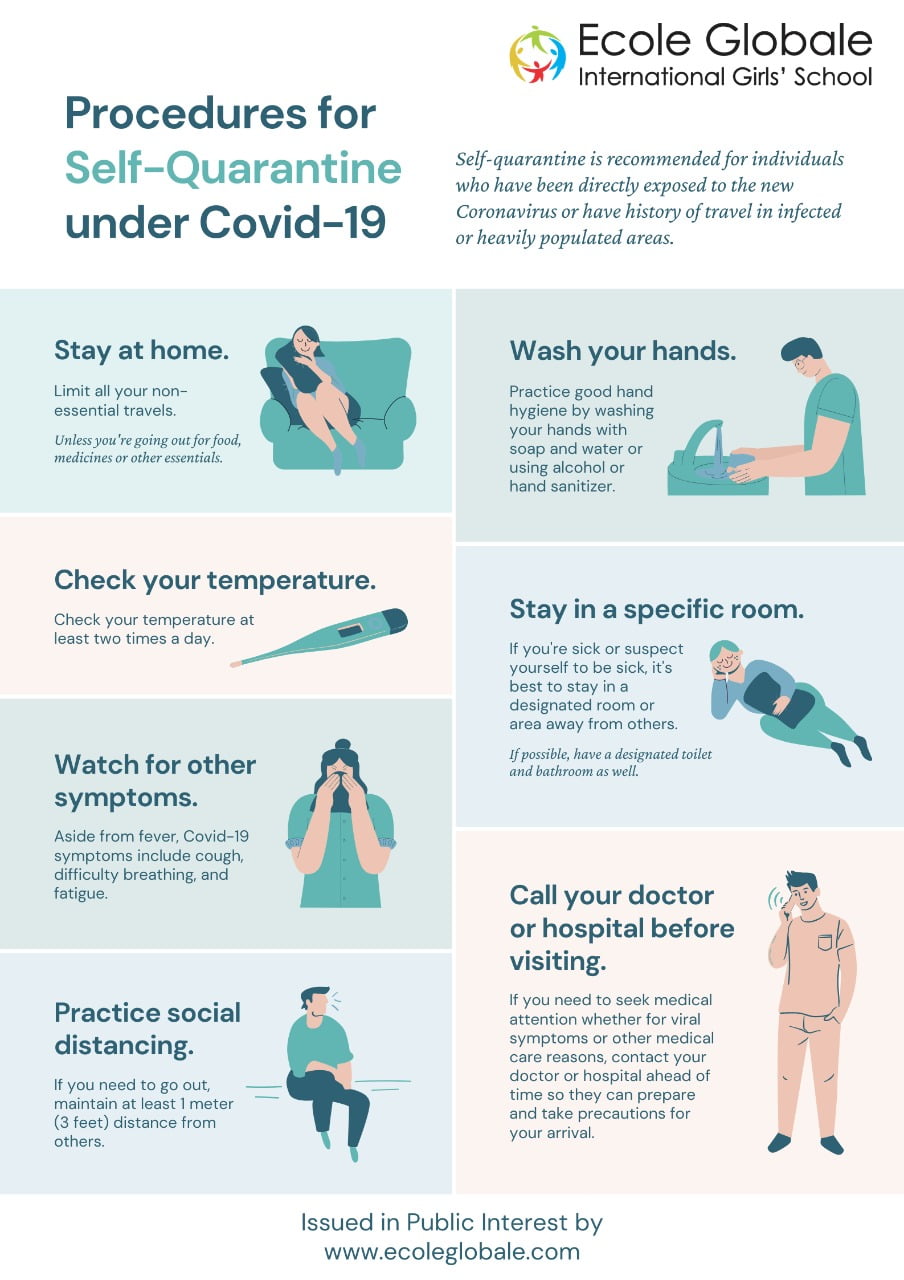COVID-19 is a highly contagious disease that is spreading across the globe at a staggering rate. This disease has infected millions of people all around the world and has also resulted in thousands of deaths. The current data and situation are evident that the pandemic, not something to be taken lightly. No vaccine yet has been developed for the disease. The government and medical health-care providers are working day and night to curb the pandemic.
Health officials have recommended Self-quarantine to the people who have developed the symptoms of the disease or come in contact with suspected hosts. All the people who have a travel history have been advised to practice 14 days of self-quarantine.
Here are a few guidelines and procedures to establish self-quarantine:-
1) STAY AT HOME
Home is probably the safest place at this time. Make sure that you spend all your time at home. The government in several countries has implemented lockdown in their respective constituencies. Follow the lockdown instructions carefully and maintain social distancing. Only leave your house to get the essentials like groceries, medicines, food, etc. Limit unnecessary travels. All the trips and picnic plans can be postponed for some time.
2) WASH YOUR HANDS
Good hygiene is always recommended by the doctors and the health-care providers to keep the diseases at bay. One such practice includes washing your hands. Doctors recommended washing your hands at regular intervals using soap and water for at least 30 seconds. The primary source of pathogens and virus transmission into our bodies is our hands. If water is not available, keep a hand sanitizer with a minimum of 60 percent of alcohol content handy. Use this sanitizer after touching any surface, especially in a public place. Also, avoid touching your face with your hands all the time. Before and after having your food, wash your hands.
3) CHECK YOUR TEMPERATURE
The common symptoms of COVID-19 include fever, cough, common cold, etc. Hence, make sure that you check your temperature at least twice a day using a regular thermometer. The incubation period of the novel coronavirus is anywhere between 2-14 days. Hence, keep a check and look for all the visible symptoms. If they are discovered, contact your health care provider and wait for their instructions. Wear a mask at all times.
4) STAY IN A SPECIFIC ROOM
If you are sick and have any of the suspected symptoms, then isolate yourself from the family members. Stay in a designated room and, if possible, use only the designated washroom and kitchen. Separate your utilities and ensure that no one else touches or uses them. A cut-off from the family members at this time is highly recommended.
5) WATCH FOR OTHER SYMPTOMS
Educate yourself about all the symptoms and look out for them. Do not take a mild fever or cough lightly. One primary symptom of this contagious respiratory disease is difficulty in breathing and fatigue. If any such signs are discovered, immediately self-isolate yourself and wear a mask. Call your medical health-care provider and tell them your condition. Do not attempt to go to the clinic yourself as you may put the lives of other people at risk as well.
6) PRACTICE SOCIAL DISTANCING
When going out for buying the essentials and the groceries, make sure that you practice social distancing. Maintain a distance of at least 3 meters from the people. The virus can travel through the air in the form of droplets. These droplets cannot travel for more than 3 meters. Hence, wear a mask and maintain a reasonable distance from the people, especially the infected person. In the trains and public places, social distancing can become hard to maintain; therefore, avoid going to such sites altogether.
7) CALL YOUR DOCTOR OR HOSPITAL BEFORE VISITING
If you have to visit the hospital, then alert the authorities beforehand. Ask them to make the necessary preparations. If you go by yourself, then you may risk infecting other people as well. For the testing, if possible, ask the authorities to visit you at home and prepare your room for self- isolation. Contact your doctor and ask them to develop the ward for your arrival.
CONCLUSION
COVID-19 is a medical health emergency. Many countries are presently suffering from its drastic effects. Many people, particularly older adults, have lost their life. The world has come to a standstill, and the economy is also at a considerable risk. Therefore, it is vital to take all the crucial precautions to maintain the well-being of society.










Like!! Great article post.Really thank you! Really Cool.